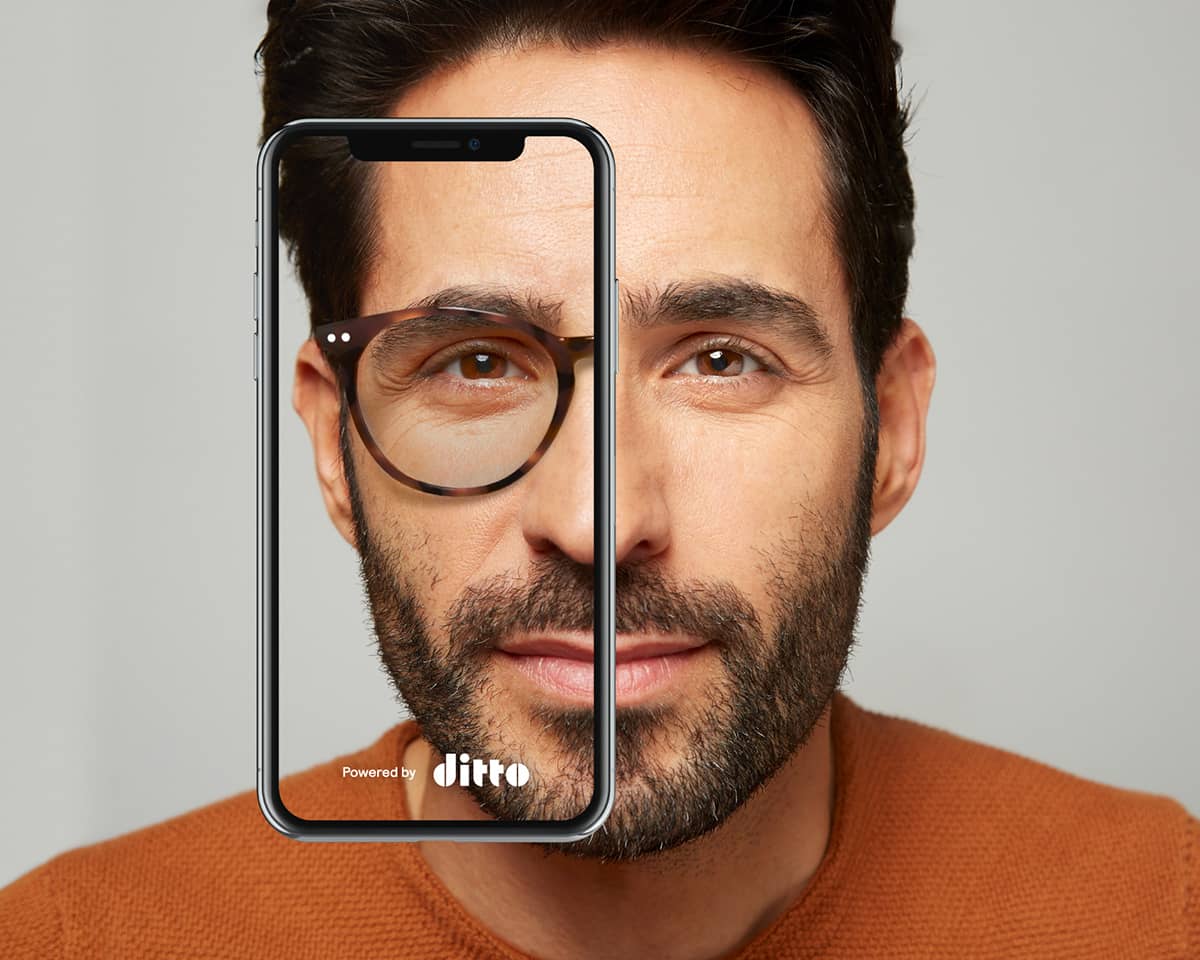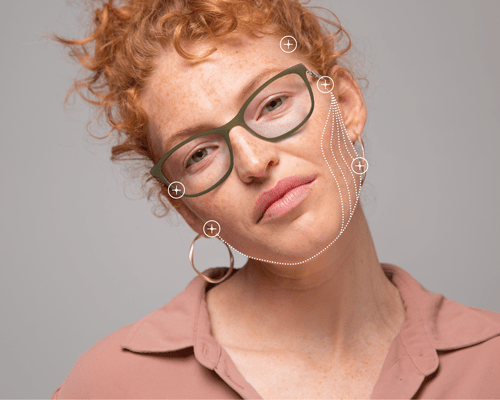Additive manufacturing software developer Materialise has invested in Ditto, a producer of online eyewear try-on services, enabling customers to browse bespoke 3D printable frames through Ditto’s online shop. The software creates a precise digital version of an individual’s face so they can try out the frames online before purchasing.
“3D printing holds the potential to transform industries by making it possible to create unique designs, manufacture in small batches and offer levels of personalization never seen before,” said Alireza Parandian, Global head of business strategy for wearables at Materialise. “Our collaboration with Ditto confirms our commitment to create an end-to-end digital platform for the eyewear industry.”
“Materialise is ideally positioned to drive these industry transformations.”

Materialise and Ditto’s 3D printed eyewear partnership
Materialise is one of the world’s largest 3D printing service providers and software developers. The firm provides both software and additive manufacturing services using its range of stereolithography (SLA), Laser Sintering (LS), Fused Deposition Modeling (FDM), Metal Printing (MP), Multi-Jet Fusion (MJF), and PolyJet 3D printing technologies. Materialise’s investment has helped Ditto implement a made-to-order system which works towards tailoring the creation process to customers’ specific eyewear requirements.
Ditto’s website prompts the shopper to level their face in the center of a circle. To measure the size of their head, the user touches their forehead with a credit card. The universal size of such cards will help the software create a map of the consumers face. Once the customer’s face is measured on Ditto’s software, they are free to browse the frames on the website. Through Ditto’s online eyewear services, Materialise will be able to provide customized 3D printed frames.

Previously, Materialise collaborated with HOYA to launch a revolutionary vision-centric 3D tailored eyewear called Yuniku. The eyewear technology assesses the consumer’s visual needs and facial features before calculating the ideal position of the lenses in relation to the individual’s eyes. Then, a personalized 3D printed frame is created based on their facial parameters.
The benefits of 3D printed eyewear
Materialise’s 3D printing capabilities reduce the need for high stock levels which makes the manufacturing process more sustainable because frames are only produced according to customer demands. It also means that customers can personalize the frames they want before the manufacturing process starts.
“Our collaboration with Materialise will help us deliver on our goal of making eyewear more personal. The shift towards eCommerce, digitally enabled smart stores, and digital manufacturing is inevitable,” said Kate Doerksen, Ditto’s CEO and Co-founder. “We are excited to bring combined solutions to our clients to create a differentiated, personalized customer experience and product offering.”

3D Printing and collaborations in the eyewear sector
3D printing has been implemented within the eyewear sector for a number of years, leading to several successful projects. In July 2017, Safilo enlisted Materialise to 3D print complex eyewear under a product line called ‘wearable sculptures’ for the OXYDO Capsule Collection 2017. The eyewear brand has previously collaborated with luxury brands such as Dior, Hugo Boss, Tommy Hilfiger.
In addition to luxury brands, in 2018 French eyewear brand MOREL started using 3D printing service bureau INITIAL’s 3D printing services to mass manufacture thousands of frames for the consumer market. MOREL produced lightweight 3D printed glasses, with the help of INITIAL, to make the glasses more accessible to a wide range of consumers.
In September 2020, Facebook Connect revealed details of ‘project Aria’, which is an Augmented Reality (AR) headset prototype. Facebook is using the project to collect data for Al training and assessing the public’s perception of the technology. Soon after, Luxexcel, a specialist in 3D printing lenses for prescribed glasses, announced its plan to delve deeper into the smart glasses market with a new leadership team.
What companies do you think are leading the 3D printing industry? Let us know by nominating them for the 2020 3D printing Industry Awards.
The fourth edition of the 3D Printing Industry Awards Trophy Design Competition is now underway! Enter your design for your chance to win a CraftBot Flow 3D printer.
Check us out on Twitter and Facebook for more updates! Don’t forget to subscribe to the 3D Printing Industry newsletter to keep up-to-date with the latest 3D printing news.
Are you looking for a job in the additive manufacturing industry? Visit 3D Printing Jobs for a selection of roles in the additive manufacturing industry.
Featured image shows a phone being used to measure the size of the customers face. Photo via Ditto


